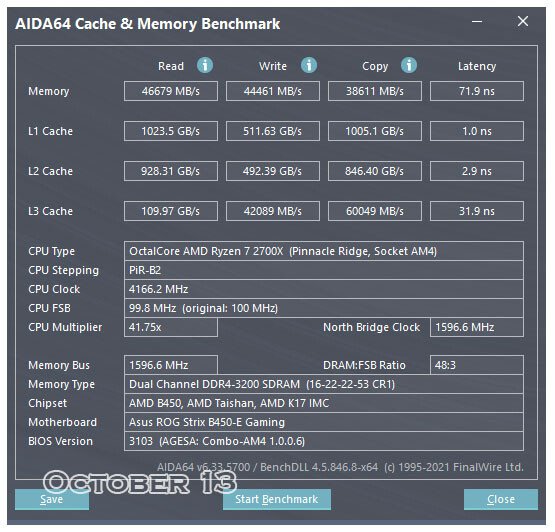Two bugs were discovered at the time of Windows 11 release. First, scheduling on Ryzen processors doesn’t work properly in Windows 11 (although it worked in Windows 10), and second, the L3 cache latency of these processors has increased extremely in Windows 11, leading to up to ~ 15% slowdown in games. Microsoft has promised to release an update that will address the issues.
In the meantime, however, he prepared updates that exacerbated the problems. The Windows 11 update for this week brought changes that further increased the L3 cache latency. While with the Ryzen 7 2700X processor the L3 cache latency is around 10 ns in previous versions of Windows and with the original version of Windows 11 it was around 17 ns:
Now, enhanced by a new update, it has grown to a size and beauty of 32 ns:
The patch for the latency-increasing bug (and hopefully a new one that has shifted the latency of the L3 cache to virtually half the latency of the memory located in the slot) should arrive next week in Windows Update (October 19). A solution for a non-functional preferred kernel system will be available two days later (October 21), but customers for whom this patch is critical can obtain it now under agreement with AMD.
Finally, we can ask a rhetorical question in how many reviews prepared for Windows 11 will appear the results measured in the current state, ie with non-standard latencies and incorrect kernel assignment.
–



